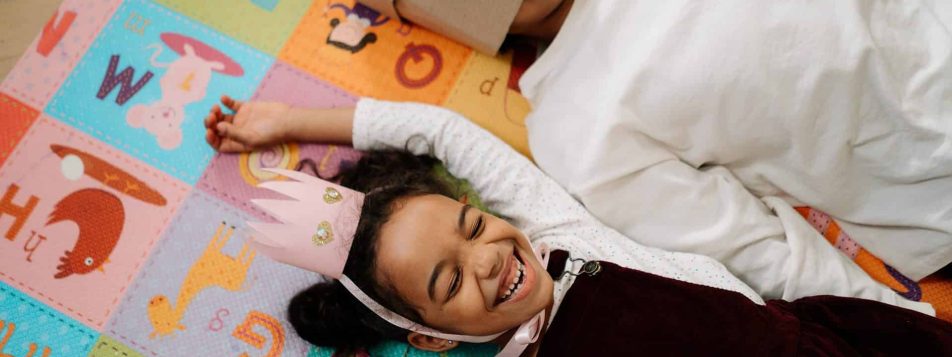“There’s a lot of research to suggest that sleep has a profound impact on our ability to learn and retain information,” says Dr. John Breus, a board-certified sleep specialist in Scottsdale, Ariz., who works with a number of Olympic athletes.
Sleep researchers have found that sleep deprivation can affect the brain’s ability to absorb information and process it into long-term memories. “Sleep is absolutely crucial for memory formation and learning,” Breus says.
In addition, Breus says that children who don’t get enough sleep tend to show more behavioral problems in school than kids who get enough shut-eye. “When kids are not well rested, they are less able to handle stress in the classroom, which can lead to misbehavior and difficulties paying attention,” he says.
Breus says that it would be ideal if every kid got 10 hours of sleep each night — but unfortunately, this is rarely the case. In fact, most kids don’t get enough sleep at night or during the school day because they don’t prioritize sleeping enough.
How much sleep should my kid get?
According to Drs. Judith Owens and Michael Gradisar from the School of Psychology at Flinders University in Australia, school-aged kids need between 9.5 and 11 hours of sleep per night.
That may seem like a lot, but it’s actually on the lower end of the range for teens and adolescents.
According to Drs. Owens and Gradisar, most kids should be getting 10 to 11 hours of sleep per night by the time they hit puberty. It means for the kids around age 13.
This is true even if they can fall asleep fairly quickly at night — if they wake up tired in the morning, then that’s a sign that they need more sleep than they are getting.
How can my kid get enough sleep?
The first step in helping your child get enough sleep is talking with him about it. A lot of times, kids don’t realize how much better they feel after getting a good night’s rest until you point it out to them.
“There is an association between self-reported poor sleep quality and symptoms such as fatigue, impaired concentration and academic underachievement,” says Breus.
So educating your child about how important sleep is will help him prioritize his rest time over other things.
If your child is staying up too late on school nights, then you can help him come up with a plan to get to bed earlier by enforcing a strict bedtime.
“Getting enough sleep every night is the key to success in school,” says Breus. “Make sure that your child gets to bed at a reasonable time, no later than 10:30 p.m., and is in bed with the lights out by 10:45 p.m.”
If your child has a hard time falling asleep or waking up in the morning, then you may need to work on his sleep hygiene. In other words, getting him into better habits when it comes to going to sleep and waking up.
One of the best ways to do this is by creating an environment that supports healthy sleep habits, such as making sure that his bedroom is completely dark and quiet so he can fall asleep easier and stay asleep all night long.
What should I do if my child still has trouble sleeping?
If your child is having trouble falling asleep or staying asleep, then you may need to see a doctor.
“If the parents are noticing that the kid is sleeping more than usual, or less than usual, or if they are having problems staying awake in class, these could be signs that something else is wrong and the child needs to be evaluated by an expert,” says Breus.
Dr. Owens from Flinders University says that there are two conditions that may cause kids to sleep excessively or not enough.
One of the cause is sleep apnea, and another is narcolepsy. Both of these disorders are fairly rare in school-aged children. But they should be taken seriously if your child has trouble sleeping.
For instance, the Centers for Disease Control and Prevention estimates that approximately 12 million Americans have obstructive sleep apnea (OSA), which causes them to stop breathing during their sleep.
If your child snores loudly or has trouble breathing when he sleeps, then this could be a sign of OSA. As the CDC notes: “OSA also is associated with increased risk for heart disease, high blood pressure and stroke.”
Narcolepsy is slightly less common than OSA, but it can cause some of the same problems — such as excessive daytime sleepiness as well as involuntary muscle movements known as cataplexy.
According to the National Institute of Neurological Disorders and Stroke (NINDS), these symptoms may make it hard for kids to focus in school and socialize with friends.
If your child shows any signs of having either of these disorders, then you should seek help from a doctor. Your doctor can examine your child and order tests to determine if they are suffering from these conditions.
How do I know if my child is getting enough sleep?
There are several signs that your child is getting enough sleep, including:
Being able to wake up easily in the morning without an alarm clock or help from others;
Getting through the school day with no difficulty concentrating or paying attention; and
Acting like his usual self — sitting still, staying focused on tasks, and behaving appropriately.
Keep in mind that your child may be able to function well at school despite not getting enough sleep. But this doesn’t mean he isn’t missing out on some important cognitive benefits.
Remember, sleep is crucial for long-term memory and brain development. So if your child is staying up late to play video games or get homework done, then he is probably missing out on important rest time.
What can I do to help my child get more sleep?
The best way to help your child get more sleep is to create an environment that supports healthy sleeping habits. If you are having trouble getting him to bed on time, then try implementing these strategies:
Create a bedtime routine. According to the National Sleep Foundation, bedtime routines can help kids relax and wind down before bedtime.
During these routines, you could read a book with your kid, sing a song together, or even take a bath together.
These routines should be calming and relaxing for both kids and parents so they don’t end in frustration and bad feelings. Make sure that the routine gets everyone into a sleepy state of mind by 10:30 p.m., at the latest.
Cudy is an online marketplace where you can find the best tutors to assist you in preparing for university entrance exams and improving your grades. Tutors will help you with any topic you're having trouble with. Cudy also has tutors from the world's best universities, so you don't have to worry about their reliability.




